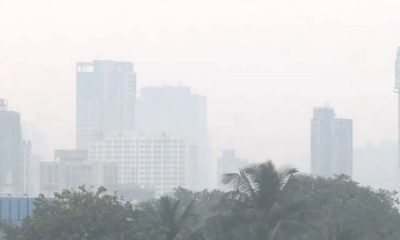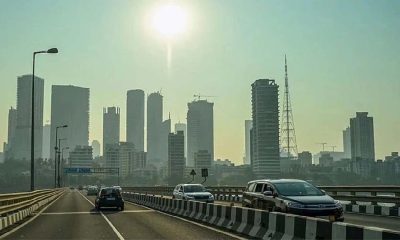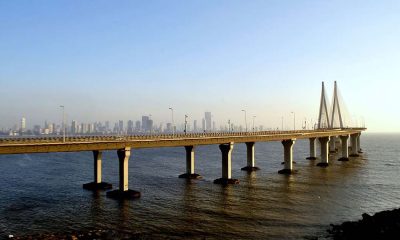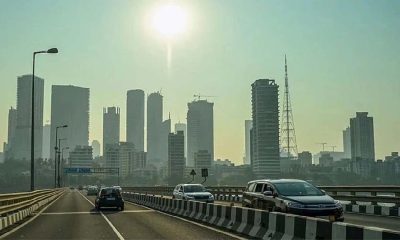National News
What Is ‘One Nation, One Election’? Pros And Cons Explained

A committee led by former president Ram Nath Kovind has been established by the government to investigate the feasibility of implementing “one nation, one election.” This development occurred on Friday, following the government’s announcement of a special session of Parliament scheduled between September 18 and 22, with the specific agenda being kept confidential.
What is ‘one nation, one election’?
The “One Nation, One Election” concept in India seeks to synchronise the elections for both the Lok Sabha (the lower house of India’s Parliament) and all state assemblies. The objective is to conduct these elections concurrently, either on a single day or within a designated timeframe.
Over time, Prime Minister Narendra Modi has consistently advocated for the concept of synchronised Lok Sabha and state assembly elections. The choice to assign this responsibility to Kovind emphasises the government’s commitment as multiple elections draw near.
Here’s an old video of PM Modi stressing the need of ‘One Nation, One Election’:
Assembly elections are scheduled to take place in five states in November-December, followed by the Lok Sabha elections in May-June of the following year. Nevertheless, the recent actions taken by the government have raised the potential of rescheduling both the general elections and certain state elections that are currently planned to coincide with the Lok Sabha contest.
Benefits of ‘one nation, one election’
One of the primary advantages of ‘One Nation, One Election’ is the reduction in the expenses associated with conducting elections, as each separate election demands substantial financial resources.
Simultaneous elections would alleviate the strain on administrative and security forces, who would otherwise be engaged in election duties multiple times.
According to reports, the implementation of ‘One Nation, One Election’ would allow the government to concentrate more on governance rather than constantly being in election mode, which often obstructs policy implementation.
Simultaneous elections, as suggested by the Law Commission, are expected to boost voter turnout since it would be more convenient for people to cast multiple ballots at once.
Drawbacks of ‘one nation, one election’
The implementation of ‘One Nation, One Election’ would necessitate amendments to the Constitution and other legal frameworks. This concept would require a constitutional amendment followed by approval from state assemblies. It’s not an entirely novel idea; it was attempted four times in the 1950s and 60s. However, it’s worth noting that India had fewer states and a smaller voting population during those attempts.
Furthermore, there is a concern that national issues could overshadow regional concerns, potentially influencing the electoral outcomes at the state level.
Achieving consensus among all political parties presents a significant challenge, given that opposition parties have expressed their objections to ‘One Nation One Election.’
National News
Bombay HC Slams Son’s Plea To Stop Elderly Parents Using His Home, Orders Him To Provide ‘Respect, Love And Care’
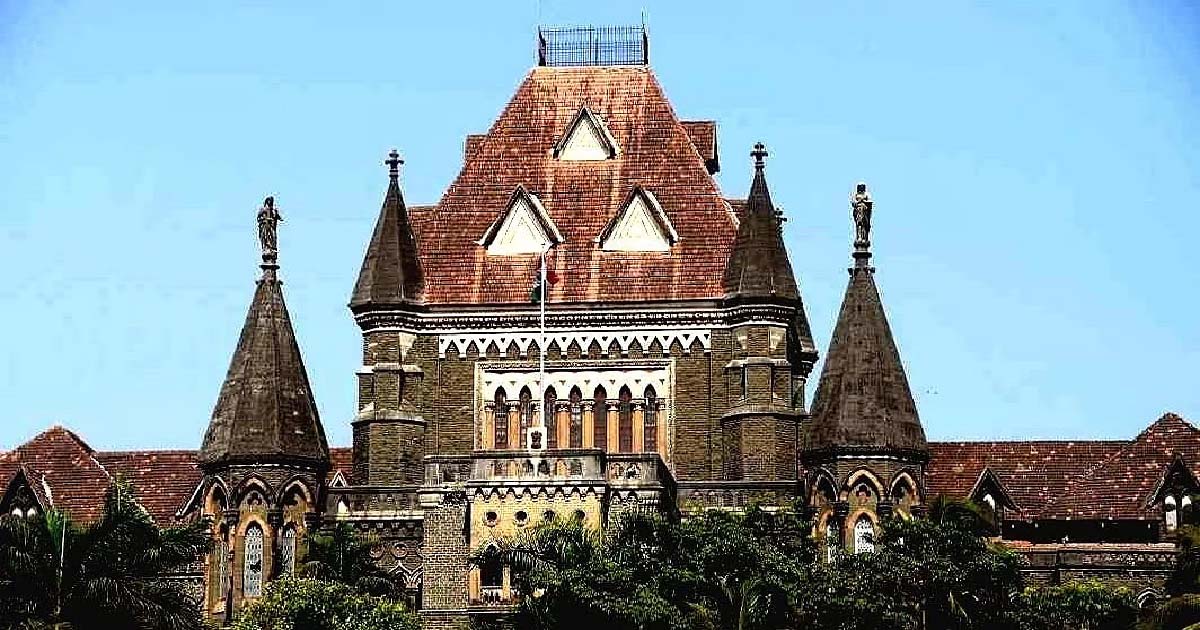
Mumbai, November 14: Expressing strong displeasure over a son’s plea seeking to restrain his elderly parents from using his Mumbai residence during their visits for medical treatment, the Bombay High Court on Thursday directed him to ensure that they are treated with “utmost respect, love and care.”
The son had approached the HC challenging a January 20, 2018, order of the City Civil Court, which had refused to grant an injunction preventing his parents—currently residing in Kolhapur—from using his transit accommodation at Goregaon (East) whenever they travelled to Mumbai for treatment. The HC described the appeal as a “sorry state of affairs.”
“This is one more instance and sorry state of affairs where a son instead of discharging the moral duty of taking care of his ailing and aged parents has filed a suit seeking restrain order,” the court observed, lamenting a decline in moral values.
Referring to cultural ideals, the court said: “The moral values inculcated in our culture have fallen to such an extent that we have forgotten Shravan Kumar who took his parents for pilgrimage and on the way laid down his life.”
The judge remarked that caring for parents “is not just a sacred and moral duty, it’s a labour of love,” emphasising that honouring and supporting them is akin to “honouring God himself.” The court noted the harsh irony that “parents can take care of ten children, but sometimes ten children cannot take care of their parents.”
Without delving into the merits of the property dispute, the court said the parents must be cared for by their three sons—one in Mumbai (the appellant), another in Airoli, and the third in Kolhapur. The senior couple requires regular treatment in Mumbai at J.J. Hospital, as well as in Panvel and Kolhapur.
As an interim arrangement, the court issued a series of directions. It ordered that whenever the parents need treatment in Mumbai, they must inform the son in advance. On the day of their arrival, “the plaintiff-son or his wife will go and receive the defendants-parents at the place of embarkment and take them” to his residence. He or a family member must accompany them to the hospital or clinic and bear all medical expenses.
After treatment, the son must escort them back to their residence and ensure they are treated with “utmost respect, love and care.” He was also directed to make suitable travel arrangements whenever the couple wishes to visit their other sons in Panvel or Kolhapur.
Any breach of these directions, the court warned, would invite contempt proceedings. The court added that the directions were “illustrative,” and the son must ensure no “inconvenience or harm of any nature whatsoever” is caused to his parents.
Business
Panvel Municipal Corporation Clears ₹48.40 Crore Gadhi River Bridge Project To Ease Traffic Congestion On Panvel–Karanjade Stretch
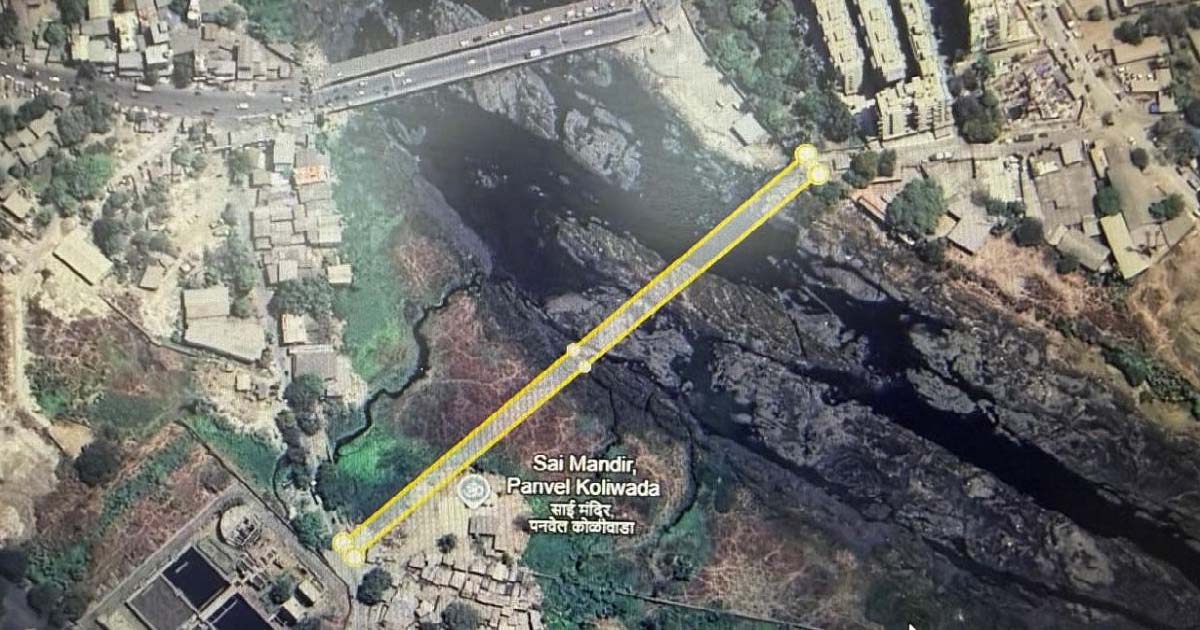
Panvel, November 14: In a major infrastructure push aimed at reducing traffic congestion and improving connectivity, the Panvel Municipal Corporation has cleared a proposal to construct a new bridge over the Gadhi River near the Karanjade sewage pumping station.
Municipal Commissioner and Administrator Mangesh Chitale approved the plan following demands raised by Panvel MLA Prashant Thakur and Uran MLA Mahesh Baldi, who highlighted the daily inconvenience faced by commuters travelling between Panvel, Karanjade and Vadghar’s CIDCO colonies.
According to civic officials, the existing bridge toward Karanjade routinely experiences heavy traffic, often resulting in prolonged congestion. With the upcoming Navi Mumbai International Airport expected to increase traffic volumes even further, the civic body believes the new bridge will be a “critical link” on the Panvel–Karanjade stretch.
The project, with an estimated cost of Rs 48.40 crore, received administrative approval in the General Body. Construction is expected to begin soon.
As per the sanctioned plan, the bridge will feature four lanes, a length of 240 metres, and a width of 21.5 metres. “It will connect Panvel Municipal Corporation’s 40-feet-wide road on the eastern side with CIDCO’s 20-metre-wide road leading to the Karanjade node on the western side.
This connection will significantly streamline traffic and support future vehicular growth,” said Additional Commissioner Ganesh Shete.
For the project, No Objection Certificates (NOCs) will be sought from CIDCO, the Water Resources Department, and the Public Works Department. The conceptual design will undergo technical review and approval by either IIT Mumbai or VJTI Mumbai, City Engineer Sanjay Katekar confirmed.
The civic administration expects the bridge to provide major relief to residents and improve overall mobility in the rapidly developing Panvel–Karanjade region.
National News
Congress, BJP win two seats each as results of eight Assembly bypolls show mixed picture

New Delhi, Nov 14: The results of the Assembly bye-elections held on November 11 delivered a mixed mandate, with both the Congress and the Bharatiya Janata Party (BJP) winning two seats each out of the eight that went to polls. Regional parties also held their ground, retaining influence in their respective strongholds.
The Congress registered two significant victories in Rajasthan and Telangana.
In Rajasthan’s Anta constituency, Pramod Jain Bhaya defeated the BJP’s Morpall Suman by 15,612 votes, securing 69,571 votes.
In Telangana’s Jubilee Hills, the Congress wrested the seat from the Bharat Rashtra Samithi (BRS). Congress candidate V. Naveen Yadav defeated BRS’ Maganti Sunitha by 24,729 votes — the highest victory margin in the constituency’s history.
The BJP, meanwhile, claimed two major wins in Jammu & Kashmir and Odisha.
In J&K’s Nagrota, BJP candidate Devyani Rana secured a commanding win with a margin of 24,647 votes.
In Odisha’s Nuapada, BJP’s Jay Dholakia defeated Congress candidate Ghasi Ram Majhi by a massive 83,748 votes, while the Biju Janata Dal finished third.
Regional parties demonstrated strong performances across several states.
In J&K’s Budgam, the Peoples Democratic Party (PDP) emerged victorious, with Aga Syed Muntazir Mehdi defeating his nearest National Conference rival Aga Syed Mahmood Al-Mosavi by 4,478 votes. The BJP’s Aga Syed Mohsin Mosvi finished a distant sixth with just 2,619 votes.
In Mizoram, the Mizo National Front (MNF) retained its hold on the Dampa seat, where Dr. R. Lalthangliana won by a narrow margin of 562 votes.
In Punjab, the ruling Aam Aadmi Party (AAP) successfully defended the Tarn Taran Assembly seat. Here, AAP candidate Harmeet Singh Sandhu retained the Tarn Taran Assembly seat, defeating his nearest rival, Sukhwinder Kaur of the Shiromani Akali Dal (SAD), who was leading in the initial rounds of counting, by more than 12,000 votes.
In Jharkhand’s Ghatshila, the Jharkhand Mukti Morcha (JMM) secured a dominant victory. Somesh Chandra Soren defeated BJP’s Babulal Soren, son of former Chief Minister Champai Soren, by a margin of 38,524 votes, polling 1,04,794 votes against the BJP candidate’s 66,270. All other 11 candidates forfeited their deposits.
-

 Crime3 years ago
Crime3 years agoClass 10 student jumps to death in Jaipur
-

 Maharashtra1 year ago
Maharashtra1 year agoMumbai Local Train Update: Central Railway’s New Timetable Comes Into Effect; Check Full List Of Revised Timings & Stations
-

 Maharashtra1 year ago
Maharashtra1 year agoMumbai To Go Toll-Free Tonight! Maharashtra Govt Announces Complete Toll Waiver For Light Motor Vehicles At All 5 Entry Points Of City
-

 Maharashtra1 year ago
Maharashtra1 year agoFalse photo of Imtiaz Jaleel’s rally, exposing the fooling conspiracy
-

 National News1 year ago
National News1 year agoMinistry of Railways rolls out Special Drive 4.0 with focus on digitisation, cleanliness, inclusiveness and grievance redressal
-

 Maharashtra1 year ago
Maharashtra1 year agoMaharashtra Elections 2024: Mumbai Metro & BEST Services Extended Till Midnight On Voting Day
-

 National News1 year ago
National News1 year agoJ&K: 4 Jawans Killed, 28 Injured After Bus Carrying BSF Personnel For Poll Duty Falls Into Gorge In Budgam; Terrifying Visuals Surface
-

 Crime1 year ago
Crime1 year agoBaba Siddique Murder: Mumbai Police Unable To Get Lawrence Bishnoi Custody Due To Home Ministry Order, Says Report



